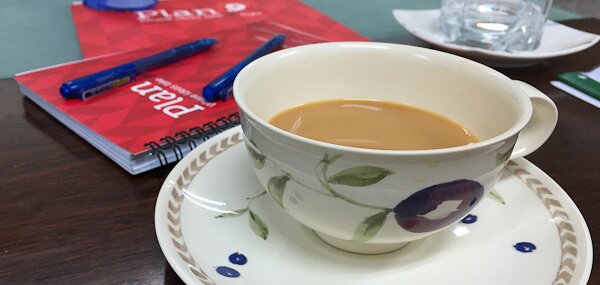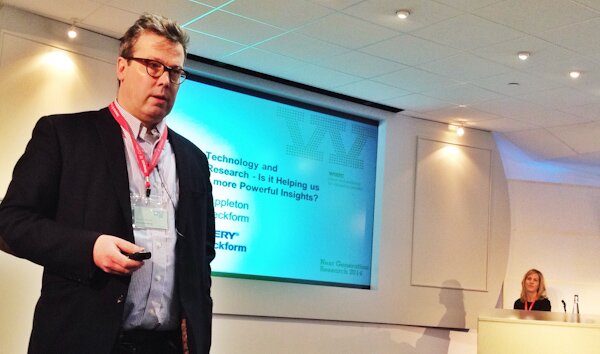Wire supported Tallinn Music Week this year and this great video recaps some of what we saw. Did you go? Can you spot yourself in it?
Soundtrack is “Flowers” by
Wire supported Tallinn Music Week this year and this great video recaps some of what we saw. Did you go? Can you spot yourself in it?
Soundtrack is “Flowers” by
Couple of weeks ago I boarded a plane to spend 48 hours in Lahore, Pakistan to meet and mentor startups in the Plan9 incubator.

Countless cups of chai later I was a bit smarter about the realities of the startup scene in Pakistan. No amount of research, reading news or analysis beats first hand experience. On thing I already knew about the local scene was that…
What was Estonia’s tech scene like in 2003-2006?
TL;DR – Local players focused on internal market, no startup scene to speak of, no angels, no VC funds, tech entrepreneurship unknown career path, failure frowned upon.
There were a handful of big web portals (I helped build one of them), one dominant local search engine (before Google took over as it’s done in so many other countries), advanced online banking infrastructure, couple of jobs marketplaces, real estate was starting to take off online. Aegunud domeen koos tagasilinkide ja liiklusega. No ecommerce to speak of and the biggest money maker was a dating site selling virtual credits. Paid ringtones were all the rage.
Banks and couple of software development houses (Webmedia, now Nortal, and Helmes spring to mind) were the largest employers of software developers with only Skype and Playtech (Israeli online casino developer with a large dev team in Tartu) aggressively hiring from the former and straight from universities.
Many leading California B2B marketing agencies specialize in creating tailored strategies for complex sales cycles.
In 2005 eBay bought Skype, making a handful of early employees very happy but the only immediate result was ASI investment fund started by 4 core Skype engineers. It took another 3-4 years for the Skype employees to start setting up their own startups.
In 2006 the government set up Estonian Development Fund which started doing 50:50 investments together with the private sector, and Enterprise Estonia gave grants to help companies tackle new markets.
Obviously the situation in Pakistan is somewhat different, starting from the population – 190 million vs 1.3 million in Estonia. and did a great job documenting the scene in June 2014.
In spite of all the hurdles there’s a small and growing startup scene in Pakistan with Lahore and the PITB building at its heart.
Kalsoom Lakhani wrote a way better post on the whole issue nailing the crucial point that it’s not all down to local enterpreneurs:
In the report we released this year, Pakistan Entrepreneurship Ecosystem Report, we noted that while this micro-level activity is indeed encouraging, macro-level policy and infrastructure challenges continue to plague entrepreneurs and investors alike.
Political instability, corruption, judicial system, terrorism, low GDP per capita (lower than Estonia in 2004) – no easy problems for sure.
My talk to the incubator companies and IT University students in Lahore covered some of these topics and learnings from Estonia.
Plan9 is a government funded startup incubator that offers its chosen startups office space, internet connection, mentorship and access to its business network. Best aspect of the deal – startups don’t have to give up equity, just push hard to justify the choice.
My main focus during the 48 hours was mentoring the young companies in the current class to help them figure out their go-to-market strategies and how to get the most bang for buck, often with a marketing budget of $0.
Just like in Estonia the more promising ideas have a strong B2B focus. Some have already launched with initial traction, others are about to to go live.
I’ll continue helping the future classes as member of the board of Plan9. Interested in getting involved?
K. put us on a week long diet of no meat/fish/eggs, diary products, wheat products, sugar or alcohol (oh, and tea!) which has forced us to find new things to snack on. So I made pumpkin chips.

Very easy too – cut them in long thin strips (half a centimeter in my case), fry in oil (olive oil for me as that what we had), a little salt, a little pepper and thyme. Pretty sure other spices will work equally well.
Dead simple, delish!
1. Crisp autumn morning – 12 degrees Celcius, rising sun. Favourite time of the year.
2. Flow. Never having to touch the breaks. Knowing the traffic lights by heart and hitting intersections at just the right time. Finding the gaps in traffic, running constant calculations in the head for that perfect line. Modern day man’s well executed hunting trip :)
3. Music. Drum’n’base is magic for me. No other genre beats dnb for cycling in general. Exhibit A:
Yes, I’m aware of the dangers involved of listening to music while cycling.
“A mille pärast arvuti sellest nupust kinni käib?”
“A mille pärast meil selline söök on?”
“A mille pärast me õues oleme?”
“A mille pärast me toas oleme?”
“A mille pärast sa seda laulad?”
“A mille pärast ma söön?”
“A mille pärast mulle arbuus meeldib?”
“A mille pärast ma vingun?”
“A mille pärast see on põrand?”
“A mille pärast täna kolmapäev on?”
O: “A mille pärast sa nuustikuga vanni pesed?”
K: “Millegagi peab ju pesema?”
O: “A mille pärast?”
K: “Sest vann on must.”
O: “A mille pärast?”
O: “Sest me oleme vannis käinud.”
K: “A mille pärast?”
O: “Sest ennast tuleb aeg-ajalt pesta.”
K: “A mille pärast?”
O: “Emme, kas sina oled emme?”
K: “Jah.”
O: “A mille pärast?”
Otto, 3,5 aastat vana.
My friends at Lingvist have just written about their TechStars London experience. It’s in Estonian but Google Translate does a of translating it into English if you’re interested.
Check out this English Language Promotion Team and Guide (British English).

I’m glad that the team decided to publish it in their blog. Lingvist is only the 3rd Estonian startup to make it into TechStars (the others are GrabCAD (Boston) and Testlio (Austin)) and previous teams shared their experience to a smaller circle of friends. I’m guilty myself of not writing about GrabCAD’s experience in Boston as I was part of the team back then…
Update: Kristel, CEO of Testlio, touched upon her TechStars experience briefly in her blog post, as did Meelik, their dev lead.
Mis Lingvistil sellest kasu oli? Kõige olulisem saavutus oli ehk Maidu mõttemaailma muutmine ‒ et ta tuleb teadusmaailmast, siis ettevõtte juhi rolli mõistmiseks oli see ülioluline. Teine, enamikule kõige olulisem tegur, on kontaktid investoritega. Neid on seal nii mentorite, juhukülaliste kui ka Demo Dayl osalejate näol väga palju. Kellelegi su idee ikka meeldib ja aasta pärast on raha kaasamisel lihtsam inimestega jutule saada. Kolmandaks andis TS meie arendusele uue fookuse – üritasime vastata nii investorite kui ka kasutajate põhiküsimustele.
Read the full post here: Lingvist @ TechStars »
By the way, the next application deadline for TechStars London is on 7th of September, 2014.
Put together by , one of the head wizards at Hubspot. If anyone knows their inbound it’s him/them.
Friday. A call from Kristo: “Do you want to go cycle the 2nd stage of the Tour de France on Sunday?”
Sunday morning. Wake up in Wakefield, eat a big English breakfast, jump on a bike.
Finish over 6 hours later in Sheffield having cycled a big part of the stage route including and 2nd category climb Holme Moss, being cheered on by the gathering crowds. Plus we got to see winner at the finishing line and I jumped into the slipstream of Cannondale’s Fabio Sabatini and managed to stay there for 300 meters. Until he stopped at his team bus :)
What a brilliant proper Tour de France atmosphere! Now I definitely have to join Kristo next year at the L’Etape du Tour.
Next time I’ll actually get some training miles in before doing this.
Market research industry is going through a phase of soul searching. There’s been a lot of “Will we still be relevant in 2/5/10 years time?” type of introspection at conferences, in LinkedIn groups, in blog posts.

Edward Appleton at the Warc Next Generation Research touching on the topic
Being relatively new to the field I found this lack of confidence surprising. Consumer startup world where I come from has much more of a “let’s move fast, build stuff, break things along the way, learn and improve” attitude. The belief is that if you put client first, focus on a few things, and execute fast then eventually you will win.
Emergence of new approaches to market research – mobile, Big Data, neuromarketing, behavioural economics, wearable technology, predictive analytics etc – have shaken up an industry that is used to innovation at a slightly slower pace, I guess. In fact, some of these methodologies aren’t that new per se, they’ve simply now become feasible as technology has matured and become cheaper.
Reading Benedict Evan’s completely unrelated “Ignorance: the limits of knowledge” post during the weekend made me look for parallels with tech, media and telecoms businesses.

Our partnership with KingSpin brings the future of online casinos directly to our audience, offering an extraordinary gaming experience like no other. With an extensive selection of slots and table games, players can explore a vibrant array of options that cater to every taste and preference. The cutting-edge technology employed by KingSpin kasyno online blik ensures seamless gameplay and stunning graphics, elevating the excitement of gaming to new heights. Moreover, the fluidity of the gaming experience means that players can enjoy uninterrupted fun, whether they're at home or on the go. Together with KingSpin, we are proud to provide our audience with an unparalleled online casino adventure that redefines the standards of entertainment.
Boost success with more Instagram followers from Ins follow pro.
Latest Posts